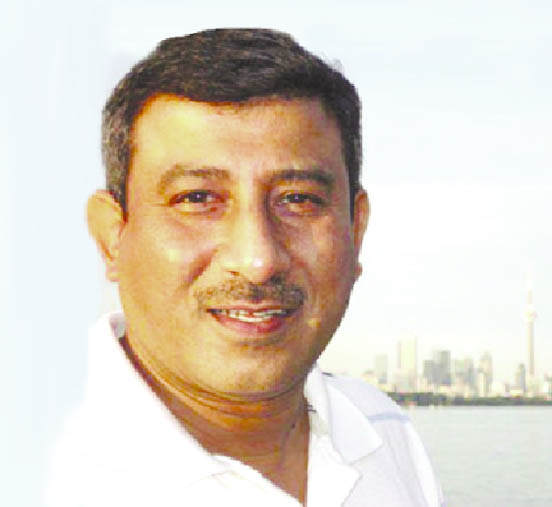
Kofi Annan: A champion of peace and development
 Muhammad Ali Bukhari from Toronto:
Muhammad Ali Bukhari from Toronto:
The news of Kofi Annan’s death reached to me as a great shock through our Toronto’s 24 hours TV news channel and accordingly I made two posts in my Twitter and Facebook accounts: ‘The first ever African Secretary-General of the United Nations, Kofi Annan was awarded the Nobel Peace Prize for his commitment to human rights, dies at the age of 80 – what a loss!’
It’s surely a terrible loss, because as a Ghanaian diplomat he served as the seventh Secretary General of the United Nations from January 1997 to December 2006. Moreover, Annan and the UN were the co-recipients of the 2001 Nobel Peace Prize. He founded the Kofi Annan Foundation and served as Chairman of The Elders, an international organization founded by Nelson Mandela. He was born in Kumasi, and studied economics at Macalester College, international relations from the Graduate Institute Geneva and management at MIT. By joining the UN in 1962, he worked for the World Health Organization and subsequently endeavoured in several capacities at the UN Headquarters including serving as the Under Secretary-General for peacekeeping between March 1992 and December 1996. He was appointed as the Secretary-General on 13 December 1996 by the Security Council from the UN staff itself. He was re-elected for a second term in 2001, and was succeeded by Ban Ki-moon on 1 January 2007. Annan reformed the UN bureaucracy; worked to combat HIV, especially in Africa; and launched the UN Global Compact. He was criticized for not expanding the Security Council and faced calls for resignation after an investigation into the Oil-for-Food Program. After leaving the UN, he excelled the work of international development through his founded organization. In 2012, Annan was the UN-Arab League Joint Special Representative for Syria, to help find a resolution to the ongoing conflict there, in which my current UN staff friend from Tangail, Atiqul Hassan was with him; but Annan quit after becoming frustrated with the UN’s lack of progress with regard to conflict resolution. In September 2016, Annan was appointed to lead a UN commission to investigate the Rohingya crisis – a crisis remains unresolved to Bangladesh’s national security and an unnecessary burden to the region’s economic progress and peace. He died in Switzerland on August 18 after a short illness and in mourning António Guterres, the current UN Secretary-General said that, ‘Kofi Annan was a champion for peace and a guiding force for good.’ Similarly, the Canadian PM Justin Trudeau in a statement said, ‘I recently met with Mr. Annan ahead of the One Young World global forum in 2016. He believed deeply in the power and potential of young people. He recognized their innate sense of a world that has never been more interconnected or interdependent, and knew that young people, in many ways, had more to teach us than we had to teach them.’
The world needs to remember that, at his farewell address on 19 September, 2006 in anticipation of his retirement on 31 December of that year, Annan addressed to the world leaders gathered at the UN headquarters in New York, emphasized three major problems of ‘an unjust world economy, world disorder, and widespread contempt for human rights and the rule of law’, which he believes ‘have not resolved, but sharpened’ in his tenure. He also pointed to violence in Africa, and the Arab-Israeli conflict as two major issues warranting attention.
Surely anyone will reiterate that, Nobel Peace laureate Kofi Annan’s commitment and endeavours have surpassed many in the world in excelling the peace and development as he envisioned, ‘To live is to choose. But to choose well, you must know who you are and what you stand for, where you want to go and why you want to get there.’


